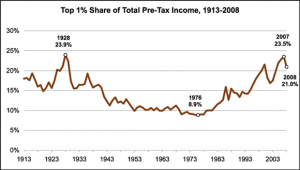Self-actualization is possible only as a side-effect of self-transcendence.
Victor Frankl
Just re-read Victor Frankl’s amazing book, Man’s Search for Meaning.
Frankl’s revolutionary premise, which inspired a new branch of psychotherapy, which he called logotherapy, was in suggesting that one’s meaning is not found in the asking, but in the answering.
That is, we are not to ask, “oh life, what meaning might thou findeth in thee?”…
But, rather, life asks us…
and we alone have the responsibility to answer with our own unique purpose.
as Frankl’s own dramatic Nazi concentration camp examples demonstrate.
I find myself asking, again, rather than taking the responsibility that Frankl suggests is key.
So, I started rummaging around for past examples of correct thinking on this matter…to help re-convince myself and mend the error of my latest wrong-headed relapse…
This one on the elusivity of happiness stood out…
Where is happiness located?
Our Declaration of Independence speaks of the “pursuit” of happiness, an expression that lends credence to its elusiveness.
Happiness must be pursued because it is indeed an elusive and often ephemeral thing.
A deeply religious person will tell you that happiness is found in God, in your faith and in conforming all your actions to be consistent with what you believe from a religious standpoint. That we stumble onto happiness on the road of religious obedience.
Our secular and highly commercialized society conveys the idea that happiness is found in things, that it resides “out there” in the world and it is your responsibility to go out and grab as much of it as you can.
Much of the literature that we read, great novels and poems that move us emotionally, express that happiness is found in romance. That romantic love is the location where happiness resides.
But I can tell you from my own experience that true and lasting happiness is not located in any of these places, as I have visited each and experienced just as much misery there as anywhere else.
Happiness is an emotion and in that sense it occupies the small amount of space located between the ears.
But if happiness is found in such an obvious and easily accessible location, why does it remain so elusive?
Moreover, why are we told in our founding document that it is a thing to be “pursued” when all along we have the capacity to “conjure it up” with our own focused thought?
We often talk about happiness being fleeting…that just as soon as we have it, it tends to dissipate, dissolve or just disappear.
Why is that?
I submit to you it is because our general ideas about happiness are all wrong.
If you think about it, the happiest among us are those who tend to be more concerned about the happiness of others than of their own, wouldn’t you agree?
Happiness spreaders tend to be happier than happiness pursuers.
The reason is because the quality, or state, of happiness has a lot to do with our feelings about ourselves. If a person is focused solely on himself or herself, it is very easy to become discouraged and disillusioned.
That’s because the more laser-like we direct our focus on ourselves, i.e., the more self-interested we are, the more apparent our imperfections, or those related to our circumstances, become.
We begin to realize that we are not the perfect specimens of humanity that we may have deluded ourselves into believing.
We, or things, are really screwed up.
Instead we discover that despite them we do have the capacity to make a difference…
to have a positive impact and influence on others.
We have the ability to spread happiness and in so doing, a magical thing happens…
we discover true and lasting happiness ourselves.






